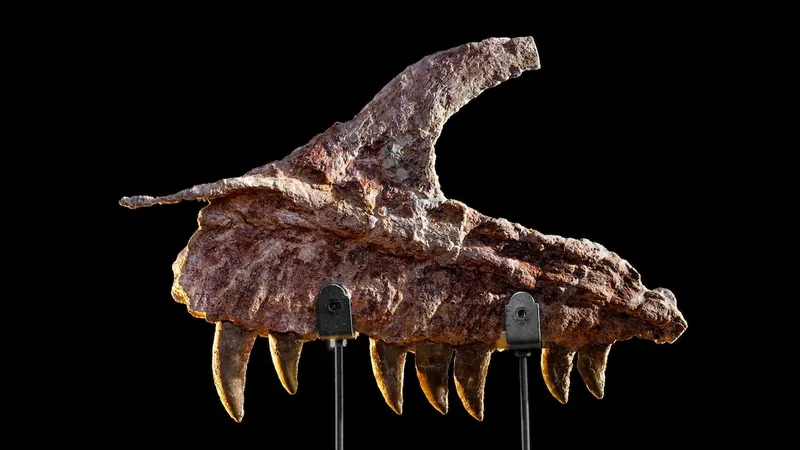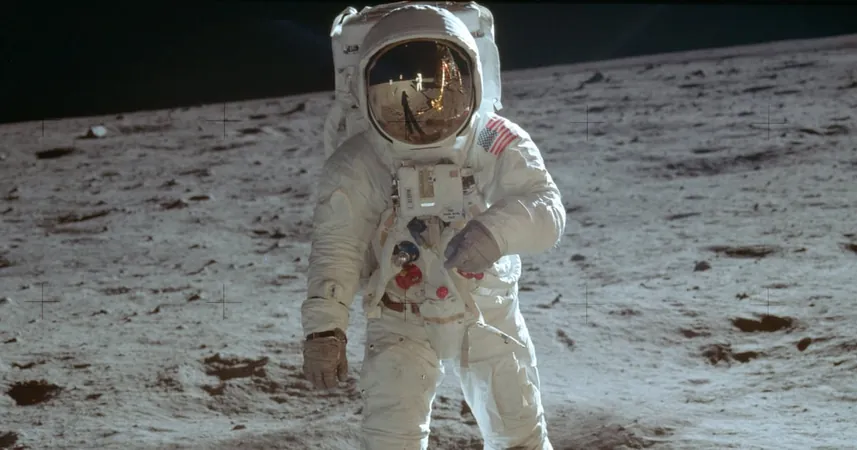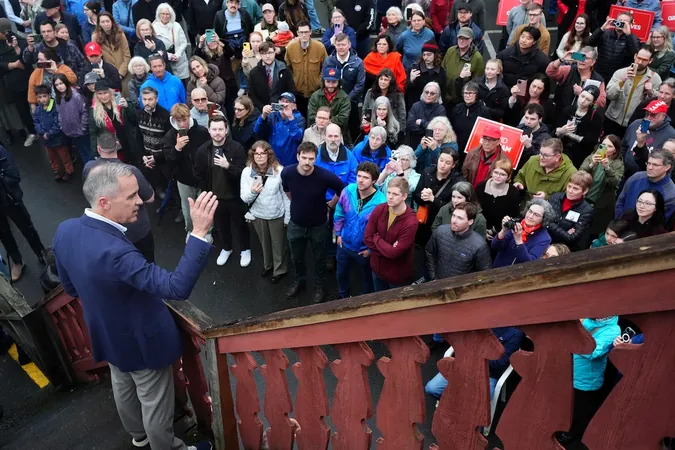
Dinosaur Dilemmas: Should Amateurs Join the Hunt?
2025-04-07
Author: Sophie
In a dusty field tucked away near Marseille, France, last September, Annie Méchin and her husband, Patrick, stumbled upon a thrilling discovery that would send shockwaves through the paleontological community. While digging on a private farm, the couple, both retired and in their 60s, unearthed what they believed to be a tiny bone fragment. Bursting with excitement, they meticulously crafted a plaster mold of their find, encapsulating their amateur passion for paleontology—a hobby that has now faced scrutiny in a heated debate.
The Rising Tension
As fossil enthusiasts like the Méchins work diligently alongside professionals, the French government and establishment paleontologists are pushing back. The rising tension over who should be allowed to dig for dinosaur fossils has sparked a contentious dialogue, as officials express concerns about looting and the thriving black market for fossils, where rare specimens can sell for staggering sums.
France's Fossil Heritage
France, a former haven for dinosaurs, possesses an expansive fossil record, dating back as far as 200 million years. Interest surged after the major discovery of dinosaur eggs in the 1950s sparked a rush for amateur diggers, leading to a surge in fossil collection—both legal and illegal. The outlaw fossil market, where a single specimen can fetch thousands, has prompted authorities to impose restrictions and establish nature reserves, most notably around Montagne Sainte-Victoire.
Amateur Contributions and Concerns
Amateur fossil hunters have often filled the gaps left by professionals who lack the time and resources to continuously search for fossils. Some amateurs have even made groundbreaking discoveries, like a near-complete titanosaur found in 2022. However, this rapid growth of enthusiasm hasn’t come without problems, as rogue diggers sometimes engage in unethical practices. Curator Thierry Tortosa recounted instances where amateurs he had assisted ended up selling their finds on the black market, leading to invaluable pieces disappearing without any trace.
The High Stakes of Fossil Trade
The fossil trade intensity is underscored by recent eye-popping sales: a complete Apatosaurus skeleton was auctioned for a jaw-dropping six million dollars, while a notable T. rex named Trinity was sold for a staggering $5.4 million. Such price tags make it impossible for museums to acquire these treasures, and if they start purchasing fossils instead of receiving them through donations, many worry it would ignite a wholesale collection frenzy.
Government Regulations and Local Opposition
In regions like Normandy, where fossil enthusiasts have hunted for Jurassic treasures for centuries, the atmosphere is charged as the government plans to designate a 23-mile nature reserve. This move will heavily restrict fossil collecting, bringing a potential fine of 750 euros for unauthorized digs. Local museum director Karine Boutillier fiercely opposes this regulation, asserting that it would stifle paleontological discovery and diminish public interest in science. Over 27,000 specimens from amateur collectors have already been flagged in protest.
The Urgency of Collaboration
Advocates for amateur searching, like doctor Laurent Puglisi, argue that the coastal sites are in dire need of immediate attention, as erosion threatens to turn uncollected fossils into sand in no time. Meanwhile, paleontologist Éric Buffetaut contends that restricting amateurs risks halting new fossil discoveries altogether, turning productive areas into academic wastelands.
Conclusion: A Struggle for Balance
As the Méchins continue their quest for knowledge and collaboration, their recent find could potentially unlock the mysteries surrounding a raptor species they previously discovered over 30 years ago. With both excitement and apprehension in the scientific sphere, the question remains: should amateurs contribute to the field of paleontology, or should stricter regulations stifle their passion? The future of fossil discovery hangs in the balance, leaving many to wonder if these two sides can ever truly reconcile. As the debate continues, one thing is clear; the fight for who gets to dig for dinosaurs is far from over, and the stakes couldn't be higher!









 Brasil (PT)
Brasil (PT)
 Canada (EN)
Canada (EN)
 Chile (ES)
Chile (ES)
 Česko (CS)
Česko (CS)
 대한민국 (KO)
대한민국 (KO)
 España (ES)
España (ES)
 France (FR)
France (FR)
 Hong Kong (EN)
Hong Kong (EN)
 Italia (IT)
Italia (IT)
 日本 (JA)
日本 (JA)
 Magyarország (HU)
Magyarország (HU)
 Norge (NO)
Norge (NO)
 Polska (PL)
Polska (PL)
 Schweiz (DE)
Schweiz (DE)
 Singapore (EN)
Singapore (EN)
 Sverige (SV)
Sverige (SV)
 Suomi (FI)
Suomi (FI)
 Türkiye (TR)
Türkiye (TR)
 الإمارات العربية المتحدة (AR)
الإمارات العربية المتحدة (AR)